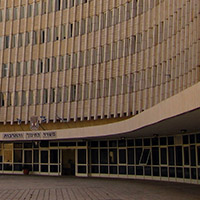Instructor: Christopher DeMuth
Stipend: ₪4,000
Many of the world’s advanced democracies have encountered painful economic upheavals in recent years—market crashes, growing debt, low growth, high unemployment, and mounting popular anxiety over stagnant wages. In Europe and even the United States, socialist ideas and politicians seem to be making a comeback. Parties of intolerant nationalism are on the rise as well.
While political debates rage about what to do—more government or less, more competition or more regulation—few nations have enacted serious, sustainable policy reforms to prepare for the challenging decades ahead. The wealthiest nations in history may be heading toward a painful reckoning: the welfare state that has developed since World War II may be heading for a crisis.
In this advanced institute, we will explore the foundational ideas of the modern welfare state and examine its diverse institutional forms in Europe, Asia, America, and Israel. Looking back, we will try to understand why certain economic policies succeed or fail. Looking ahead, we will evaluate a range of alternatives for preserving national economic strength and social cohesion in a world re-made by globalization, aging populations, new technologies, and dramatic cultural transformations in how people live and what they value.
The institute will be led by Christopher DeMuth, one of America’s preeminent economic and policy thinkers. Mr. DeMuth worked in the Nixon and Reagan administrations, taught at Harvard University, and for 20 years served as President of the American Enterprise Institute, America’s most prestigious conservative think-tank. He is now a Distinguished Fellow at the Hudson Institute in Washington DC.
Who Should Apply?
This institute is designed for Israeli participants with a strong background in economic ideas and policy and a professional interest in working toward Israeli economic reform.
Our aim is to create a forum for understanding how the economic lessons of various nation-states around the world can apply to the concrete challenges facing modern Israel. Part seminar and part working group, the seminar will aim to develop a new way of thinking about Israeli economic policy—and to help create a group of individuals who work together after the seminar to strengthen Israel’s economic well-being in an era of tremendous change and uncertainty.
Alumni of the Tikvah Advanced Institutes are not eligible to apply for the Fall 2016 institutes, but may ask to audit.


 Christopher DeMuth is a Distinguished Fellow at the Hudson Institute in Washington, D.C. He was President of the American Enterprise Institute for Public Policy Research from 1986–2008 and D.C. Searle Senior Fellow at AEI from 2008–2011. He served as Staff Assistant to President Richard M. Nixon in 1969-1970, working first for Daniel P. Moynihan (then Assistant to the President for…
Christopher DeMuth is a Distinguished Fellow at the Hudson Institute in Washington, D.C. He was President of the American Enterprise Institute for Public Policy Research from 1986–2008 and D.C. Searle Senior Fellow at AEI from 2008–2011. He served as Staff Assistant to President Richard M. Nixon in 1969-1970, working first for Daniel P. Moynihan (then Assistant to the President for…